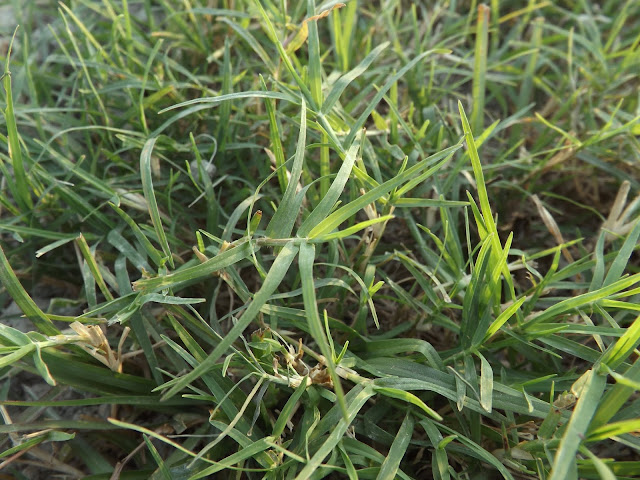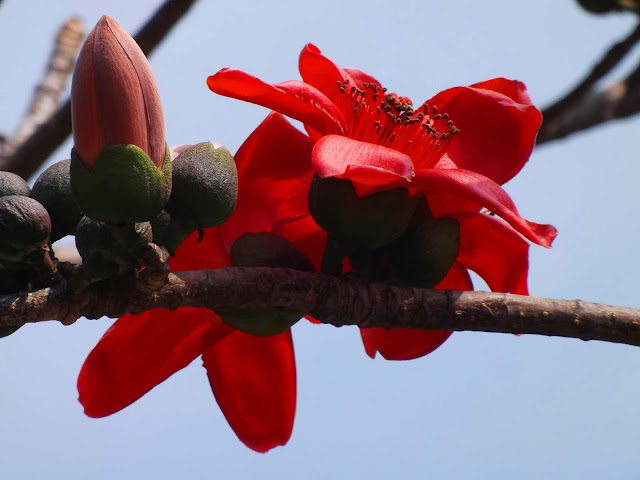Durba-ghash or Bermuda grass, Cynodon dactylon
Durba-ghash or Bermuda grass (Cynodon dactylon, family: Gramineae) is a perennial grass with cylindrical nodes and internodes. It creeps on ground by creating roots from nodes of stem. Stem (up to 45 cm long) is usually green, sometimes reddish. The creeping herb is a traditional medicinal plant of the Indian subcontinent.
It is found all over the country as a crop weed. It is also found in South and Southeast Asia and The tropical region of Africa. Although its roots do not go deep into the soil, it retains the soil quite well. Otherwise, in a rainy country like ours, it would have been impossible to prevent soil erosion.
Leaves are narrow or linear with pointed tip, pale green, minutly hairy, 2-8 cm long. The leaf ligules are covered with thin white hairs.
Inflorescence is brownish green, divided in to 5 parts, each part 2-5 cm long. Flowering occurs almost round the year. It is propagated by seeds, rhyzome and stolon.
The plant contains triterpenoids, proteins, carbohydrates and many organic acids. It is used as uretic. Leaf juice is used in inflammed tumours, whitlows toothache, eczema, menstruation and to stop bleeding. The plant is also used in syphilis and inflammation of the urethra.
Its roots cannot go deep into the soil. However, being one of the most beautiful grass species, it is planted in garden lawns as an ornamental plant. There are many references in Bengali folklore about this plant. It is an essential element of Hindu worship.






Bermuda grass weed in lawns and flower beds can be very difficult to control since it grows really fast and takes over the lawn. The best way to kill Bermuda grass is to choke it out, solarize it, or use a selective herbicide. article: How to Kill Bermuda Grass
ReplyDeleteSpice vape juice uk diverse and lively flavors are its greatest asset. Every puff is like taking a little vacation. Plus, it's perfect for people who prefer a soothing vaping experience without any harshness because to its smooth vapor. An absolute must-have for those seeking to take their experience to the next level.
ReplyDelete